Life
Sign up for our newsletter
We summarize the week's scientific breakthroughs every Thursday.
-
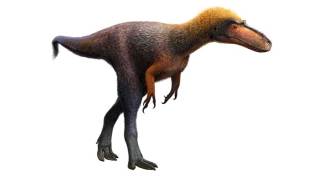 Paleontology
PaleontologyA tiny mystery dinosaur from New Mexico is officially T. rex’s cousin
A newly identified dinosaur species called Suskityrannus hazelae fills a gap in tyrannosaur lineage.
-
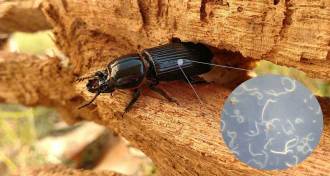 Earth
EarthA belly full of wriggling worms makes wood beetles better recyclers
Common beetles that eat rotten logs chew up more wood when filled with a roundworm larvae, releasing nutrients more quickly back to the forest floor.
-
 Archaeology
ArchaeologyAn ancient pouch reveals the hallucinogen stash of an Andes shaman
South American shamans in the Andes Mountains carried mind-altering ingredients 1,000 years ago, a study finds.
By Bruce Bower -
 Ecosystems
EcosystemsWar wrecked an African ecosystem. Ecologists are trying to restore it
Bringing back big predators to Gorongosa, once a wildlife paradise in Mozambique, is just one piece of the puzzle in undoing the damage there.
By Jeremy Rehm -
 Animals
AnimalsThese award-winning photographs capture rarely seen wildlife and landscapes
Winners of the California Academy of Sciences’ annual photo contest dove deep underwater and hiked to great heights to create these striking images.
By Maanvi Singh -
 Animals
AnimalsPandas’ share of protein calories from bamboo rivals wolves’ from meat
The panda gut digests protein in bamboo so well that the animal’s nutritional profile for calories resembles a wolf’s.
By Susan Milius -
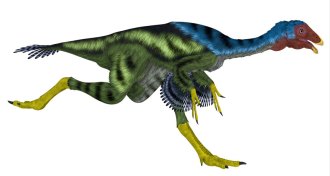 Paleontology
PaleontologyA dinosaur’s running gait may reveal insights into the history of bird flight
In what may have been a precursor to avian flight, a flightless winged dinosaur may have flapped its wings as it jogged.
-
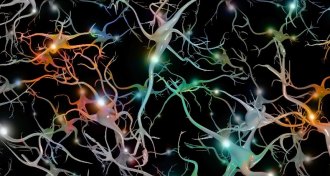 Artificial Intelligence
Artificial IntelligenceAn AI used art to control monkeys’ brain cells
Art created by an artificial intelligence exacts unprecedented control over nerve cells tied to vision in monkey brains, and could lead to new neuroscience experiments.
-
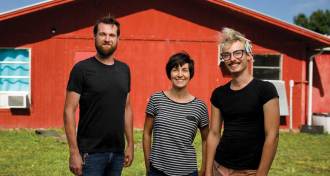 Agriculture
AgricultureCan Silicon Valley entrepreneurs make crickets the next chicken?
Entrepreneurs are bringing automation and data analysis to insect agriculture to build a profitable business that helps feed the planet.
By Susan Milius -
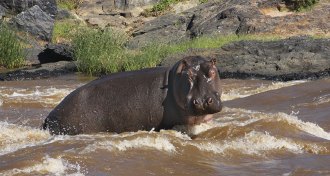 Animals
AnimalsHippo poop cycles silicon through the East African environment
By chowing down on grass and then excreting into rivers and lakes, hippos play a big role in transporting a nutrient crucial to the food web.
-
 Health & Medicine
Health & MedicineA mysterious dementia that mimics Alzheimer’s gets named LATE
An underappreciated form of dementia that causes memory trouble in older people gets a name: LATE.
-
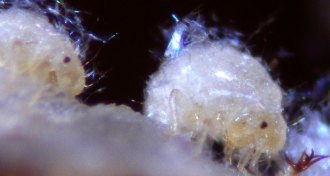 Animals
AnimalsHow aphids sacrifice themselves to fix their homes with fatty goo
Young aphids swollen with fatty substances save their colony by self-sacrifice, using that goo to patch breaches in the wall of their tree home.
By Susan Milius